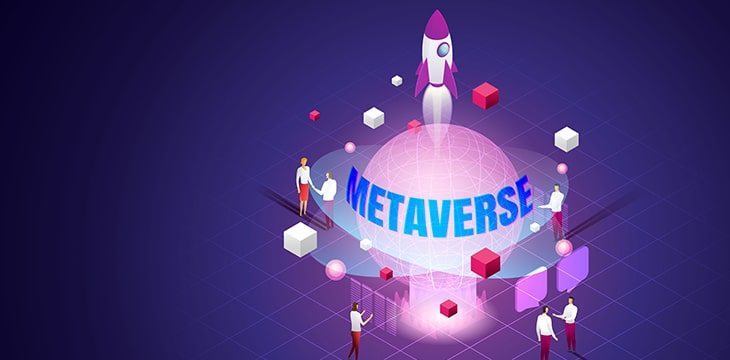Management consulting firm Deloitte has predicted that the metaverse industry in India could have an economic impact worth between $79 billion and $148 billion by 2035. The prediction was contained in a report titled “The Metaverse in Asia Strategies for Accelerating Economic Impact” that offered an in-depth look into the potential of virtual worlds for the continent.
Deloitte noted that the combination of India’s young and tech-savvy population puts it in a pole position to harness the potential of the metaverse. Two other factors Deloitte says will be instrumental in the growth of the metaverse in India are positive regulation from the government and a high level of social acceptance.
Already, the country is showing record-high adoption levels, with a study indicating that 80% of respondents have had previous experience with the metaverse, while over half of those surveyed hinted that they were excited about the possibilities of exploring virtual worlds.
“It is demographically well-positioned to contribute digital labor to the metaverse, especially since it is already a go-to destination for IT offshoring globally and is evolving rapidly into a product development hub,” said Deloitte.
In terms of government interest in regulating the sector, Deloitte’s report notes that India is among the pacesetters in the industry. It highlights the fact that India was one of the first jurisdictions to include the metaverse in its policy considerations on cyberbullying and sexual abuse.
With India inching forward toward unveiling the Digital India Act, it is expected that a proper framework will be established to prevent the crimes of inciting violence and spreading misinformation on the metaverse.
“With more regulatory certainty and a clear legal framework for Virtual Digital Assets, India’s mature digital payments systems can be leveraged to orchestrate the economic infrastructure of the metaverse,” read the report.
India’s government is playing its own role
India’s government has stated that it will provide an enabling environment for Web 3 firms to experiment with new offerings for consumers in the industry. Union Minister of State for Skill Development and Entrepreneurship Rajeev Chandrasekhar announced that “there is absolutely nothing in the law that prevents” firms from exploring metaverse or non-fungible tokens.
Industry participants are hopeful that regulatory clarity can be achieved to back the words of the Minister. However, the country has signaled to use its G20 presidency to push for global digital asset regulations.
The government has been relying on distributed ledger technologies (DLT) in recent months, using them for its central bank digital currency (CBDC) and streamlining local land registries’ operations.
Watch: The BSV Global Blockchain Convention presentation, Enabling the Real World Metaverse
title=”YouTube video player” frameborder=”0″ allow=”accelerometer; autoplay; clipboard-write; encrypted-media; gyroscope; picture-in-picture” allowfullscreen>
New to Bitcoin? Check out CoinGeek’s Bitcoin for Beginners section, the ultimate resource guide to learn more about Bitcoin—as originally envisioned by Satoshi Nakamoto—and blockchain.
Read More: news.google.com









 Bitcoin
Bitcoin  Ethereum
Ethereum  XRP
XRP  Tether
Tether  Solana
Solana  Dogecoin
Dogecoin  USDC
USDC  Cardano
Cardano  Lido Staked Ether
Lido Staked Ether  TRON
TRON  Avalanche
Avalanche  Wrapped stETH
Wrapped stETH  Sui
Sui  Chainlink
Chainlink  Toncoin
Toncoin  Shiba Inu
Shiba Inu  Stellar
Stellar  Wrapped Bitcoin
Wrapped Bitcoin  Polkadot
Polkadot  Hedera
Hedera  WETH
WETH  Bitcoin Cash
Bitcoin Cash  Uniswap
Uniswap  Pepe
Pepe  Litecoin
Litecoin  Hyperliquid
Hyperliquid  LEO Token
LEO Token  Wrapped eETH
Wrapped eETH  NEAR Protocol
NEAR Protocol  Internet Computer
Internet Computer  Ethena USDe
Ethena USDe  USDS
USDS  Aptos
Aptos  Aave
Aave  Render
Render  Mantle
Mantle  Bittensor
Bittensor  Cronos
Cronos  POL (ex-MATIC)
POL (ex-MATIC)  Ethereum Classic
Ethereum Classic  Artificial Superintelligence Alliance
Artificial Superintelligence Alliance  Virtuals Protocol
Virtuals Protocol  WhiteBIT Coin
WhiteBIT Coin  MANTRA
MANTRA  Arbitrum
Arbitrum  Monero
Monero  Tokenize Xchange
Tokenize Xchange